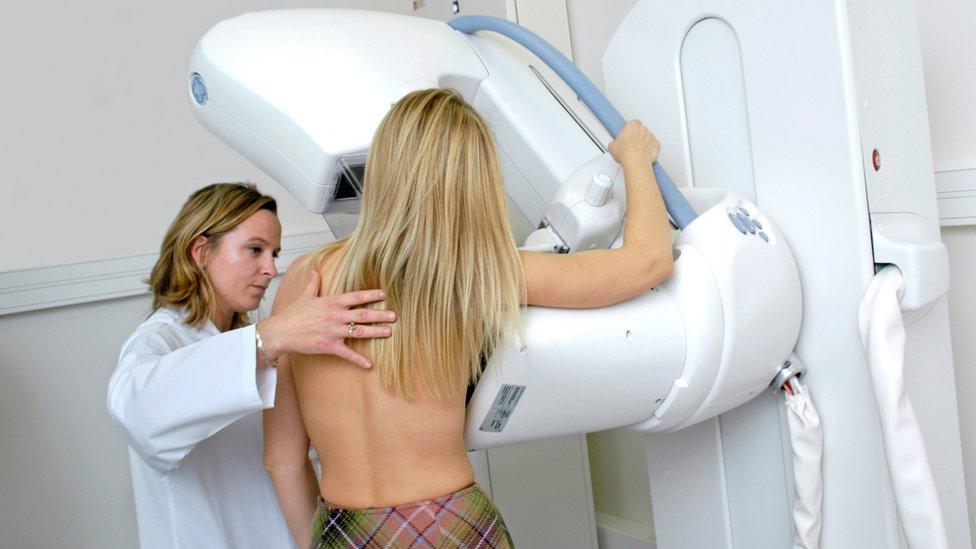Health trusts miss breast cancer assessment target
- Published

During March, 85.6% of patients were seen within 14 days compared with 100% in the previous year.
The 14-day breast assessment target has again not been met in Northern Ireland.
During March, 1,387 patients were seen by a breast cancer specialist for a first assessment following an urgent referral for suspected breast cancer.
Of these, 85.6 % (1,187) were seen within 14 days compared with 100% in the previous year.
Statistics published by the Department of Health show 69.4 % of new referrals for suspected breast cancer were classified as urgent in March 2019.
The department said the waiting times are "unacceptable".
In a statement it added: "The department's approach to transforming cancer care is firstly to stabilise services on fewer sites staffed by larger teams of professional staff.
"Larger teams will make it easier to attract and retain staff and to cope when some are unavailable."
Reshaping cancer care
The Department of Health is carrying out a public consultation, reshaping the breast assessment care.
Proposals published could see the service withdrawn from Craigavon Area Hospital and the Belfast City Hospital.
Assessment services would be located at Altnagelvin Hospital, Antrim Area Hospital or the Ulster Hospital.
Hundreds of people have attended the public meetings to hear about the proposed changes, but also to voice their support to retain the assessment service in their health trust.
Due to demand, the consultation has been further extended to 2 August.
In May, Northern Ireland's chief medical officer appealed to the public to respond to the ongoing consultation.
In an unusual step, Dr Michael McBride stressed that "no change is not a realistic or responsible option".
Dr McBride said services and staff could not be stretched too thinly across Northern Ireland.
"The proposals are also about strengthening services for the future, in anticipation of increased demand for breast assessment," he said.
"A surge in the incidence of cancer is projected for forthcoming years, reflecting the growing older population in our society."